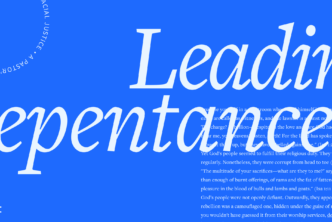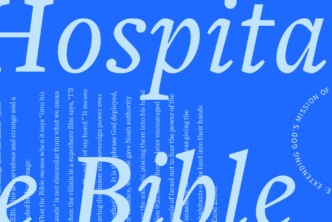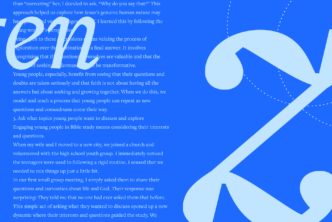Francis Schaeffer (1912–1984) was an evangelical missionary, theologian, and writer, best known for founding L’Abri with his wife, Edith.
After studying at Hampden-Sydney College, Westminster Theological Seminary (where he studied under Cornelius Van Til), and Faith Theological Seminary, Schaeffer pastored churches in Pennsylvania and Missouri.
In 1948, Schaeffer moved to Switzerland and founded L’Abri, a community where people discuss philosophy and religion. Thousands of people have passed through L’Abri, and it has expanded into several other countries.
In the following excerpt from Letters of Francis Schaeffer—included in one of several Schaeffer collections—we find Schaeffer reflecting on a challenging season of his life and the earthly cost of entering into deeper communion with God.
***
The Pain of Death or the Pain of Birth
[Written shortly after the Schaeffers arrived back in Champéry, Switzerland. The person to whom the letter was written is not known, though evidently he or she was close to the Schaeffers, as is suggested by the last paragraph and the tone of the letter as a whole.]October 11, 1954
Chalet Bijou
Champéry, Switzerland
Dear Friend:
Thank you for your note of September 20. It encouraged my heart. How lovely is the Lord, and how wonderfully He is always waiting for us to come to Him and know His peace and joy.
Yes, the time has been difficult, and yet the peace we have known through it makes it exceedingly precious. Since writing to you from the boat, our son, two years of age, has had polio. He began it on the boat, but we did not know what it was. His left leg is affected, but the doctor now gives us good hope that he may return to normal.
Events since we have seen each other make me more sure than ever that the Lord is calling some of us indeed to learn all that the blood of Christ and the indwelling Holy Spirit should mean to us in this present life. Increasingly, I believe that the Devil fears this above all else. Doctrinal rightness and rightness of ecclesiastical position are important, but only as a starting point to go on into a living relationship—and not as ends in themselves.
When you looked over my article in London for the Reformation Review I remember you said, “They will not like this.” I replied that I knew, but I did not realize how deep a wound I touched. I find I am being pursued into my work here, and that a determined and successful effort was made in Philadelphia to turn some of the Europeans away from these spiritual matters, and to make them fasten their eyes on loyalty to the external machinery and human leadership. I am sorry. The personal may rest, but I grieve for the work of God. Yet the Lord has given me many wonderful encouragements also; and I do feel that He is calling many of His own into the place of deeper communion.
Would there ever be a time when you could come to Switzerland to meet with others of like mind—to fellowship in the quietness of the Alps with a small number as we did together that night in your home? We would like to entertain you in our home. I believe that the pain you have felt, and I have felt, is not the pain of death, but the pain of birth in a day of blessing, as the whole body is made more ready for the Bridegroom’s coming. Surely the birth pains mean little if such a result is born through our dear Lord’s grace.
With warm greetings in the slain and risen Lamb,
Francis A. Schaeffer
***






